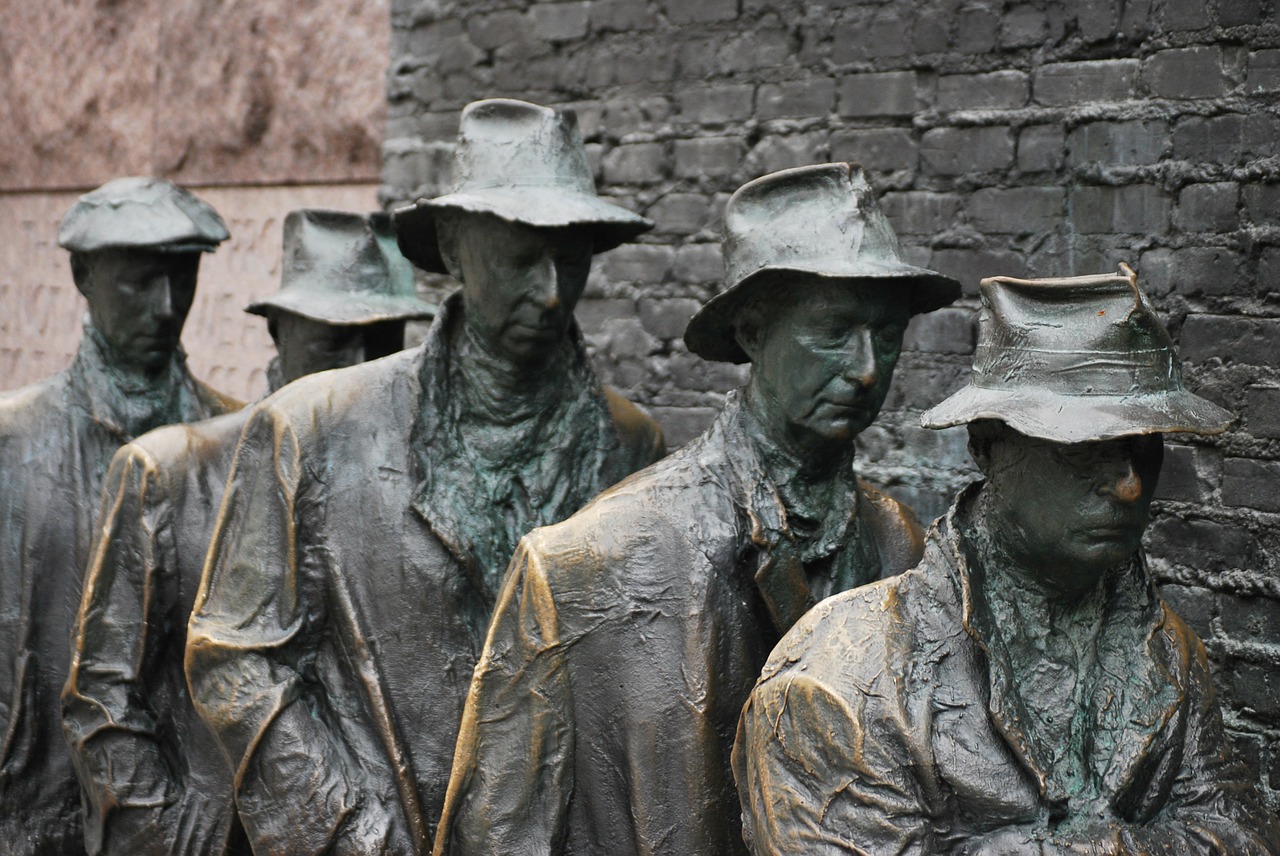Translating deep thinking into common sense
“So I Don’t Suddenly Disappear”

By Walter Donway
February 11, 2015
SUBSCRIBE TO SAVVY STREET (It's Free)
The Department of Labor is very, very accurate. I need to make that very, very clear so that I don’t suddenly disappear. I need to make it home tonight.
An amusing little quip. I’m sure he smiled when he said it. Except it was Jim Clifton, the chairman and CEO of the Gallup organization, the leading and legendary polling company, and he was being interviewed on CNBC. The day before, Clifton had written an opinion piece on the Gallup Web site calling the government’s startling and highly positive 5.6 percent unemployment figure “The Big Lie.”
Now, he joked, on CNBC, he was retracting the title, “big lie.” He said: “I think that the number that comes out of BLS [Bureau of Labor Statistics] and the Department of Labor is very, very accurate. I need to make that very, very clear so that I don’t suddenly disappear. I need to make it home tonight.”
The Gateway Pundit, reporting the retraction, suggested: “Years of unending news stories on U.S. government programs of surveillance, rendition and torture have apparently chilled the speech of even top business executives in the United States.”
Well maybe, but what was this all about? Many thought that the policies of the Obama administration, the doubling of the national debt and the “quantitative easing” by the Fed—massive inflation—were not policies that would bring the United States out of the deepest recession since the Great Depression of the 1930’s. And improvement came slowly. But to believe the reports of the Bureau of Labor Statistics and the financial press, their success is undeniable; the beans are on the table, count them.
The most new jobs in decades are being reported—including in a blowout “Jobs Friday” report last week. Americans are back at work; unemployment is low. It took a while, but the policies of the Obama administration got us there. And so, Mr. Clifton began his article, “The Big Lie: 5.6 Percent Unemployment,” by saying: “The cheerleading for this number is deafening. The media loves a comeback story, the White House wants to score political points and Wall Street would like you to stay in the market.”
And then, he pointed out a few things that many Americans do know, but many don’t. If you have given up looking for work, for four weeks or more, and may never find work again, the Department of Labor does not count you as unemployed. But 30 million Americans are in that category or are severely under-employed.
And something I did not know:
If you are an unemployed engineer or retail manager, but able to work at least one hour a week (e.g., mowing a lawn) and are paid at least $20, you are not counted as unemployed.
Also, if, for example, you are a teacher out of work but have found a part-time job at anything for 10 hours a week, you are not counted as unemployed.
In addition to the BLS, Gallup also polls people about their employment, hours worked, and attitude toward finding a job. For those polls, Mr. Clifton said, Gallup considers that you have a “good job” if you work 30 or more hours a week for an employer who provides a steady paycheck. By that standard, how are we doing in sixth year of the Obama administration? “Right now, the U.S. is delivering at a staggeringly low rate of 44%, which is the number of full-time jobs as a percent of the adult population, 18 years and older.”
The Obama employment myth is “a lie that has consequences.”
That is, well under half of adult Americans have a decent job with a steady paycheck. Mr. Clifton’s assessment: The Obama employment myth is “a lie that has consequences, because the great American dream is to have a good job, and in recent years, America has failed to deliver that dream more than it has at any time in recent memory.”
Forbes reported not long ago, citing a recent Bureau of Labor Statistic report, that Obama had “outperformed Reagan” on jobs and dubbed it “the best private sector employment creation performance in American history.” The report did mention the issue of labor participation rate and part-time jobs, saying the BLS had tracked them since 1900, but said only that they are included in the “labor participation rate”—not how “únder-employed” is defined, today, or how many “good” jobs there are, as defined by Gallup.
Mr. Clifton pointed out that he hears (as all of us do) in media reports that the economy and jobs are doing great, but “people just don’t feel it.” Well, perhaps because they have given up looking for a job, work two hours a week for $40, or have a job that is part-time in some field not their own and for only 10 hours a week.
This prominent CEO, heading Gallup since 1988, went on national television the next day and commented that the employment situation in America is “the worst it has been in 30 years.” But he said he wanted to retract the title of his article, “The Big Lie.” He joked that he might “suddenly disappear.” And it was reported that he went on CNBC specifically to “walk back” the “Big Lie” assertion.
But I’m sure he was being satirical. Are you?








